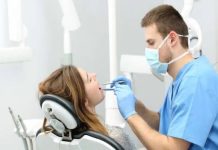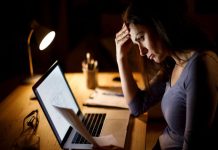We’re exposed to sound all day. From noise at work during the day to the TV during the evening, we’re always experiencing sound of some kind.

Usually, the noises we experience are at safe levels and they’re not enough to cause any damage to our hearing. But there are occasions where this isn’t the case. Here, we look at what noise-induced hearing loss is and how to prevent it.
The sounds we experience
The sounds we make are a key part of the way we communicate. This applies to several things. As well as the more obvious, such as speech and the sounds we make when we talk, there are other examples of sound used as communication.
For instance, the sound of traffic indicates it’s unsafe to cross the street. The sound of the lawnmower means that now’s not the best time to try to catch your neighbor’s attention.
Sounds can, therefore, be a good thing. However, if they’re too loud or persistent, they can have a negative impact.
What is noise-induced hearing loss?
Sounds can be harmful if they’re too loud. Even brief exposure to loud noise can have a lasting effect on your hearing. But if you’re exposed to loud or persistent noise over a long period of time, you’re more likely to experience long-lasting damage to your hearing.
If you’ve been around loud noises and you’ve noticed a change in your hearing, you might have noise-induced hearing loss. This is where the loud or persistent sounds have damaged the sensitive hair cells of your ear. If these cells are destroyed, they don’t grow back, which means lasting hearing damage.
When is noise-induced hearing loss likely to occur?
It can take years to notice the impact of noise-induced hearing loss and there are some situations where people are more likely to be exposed to this than others.
A key area of our lives where we could be exposed to hearing damage is in the workplace, and there are some industries that are louder than others. Office workers are less likely to be exposed to loud noises than those working on a building site, for example.
According to the Hearing Health Foundation, 22 million US workers are exposed to hazardous noise levels annually and musicians are 400% more likely to have hearing loss than the general public. This reveals that the industry we work in can put s at risk of noise-induced hearing loss.
There are other causes, too. Listening to loud music, having the TV on full blast, and attending concerts where there are damaging sound levels can all contribute to this issue.
If you think you’ve experienced hearing damage, it’s worth getting a professional opinion. Seeking medical advice can help you to identify the damage levels done to your hearing and you’ll be given advice on how to reduce the risk of further harm.
How to prevent noise-induced hearing loss
There are ways to reduce the risk of noise-induced hearing loss.
-
Identify loud noise
While you may be accustomed to loud noise levels, it’s worth taking the time to identify the sounds that you’re regularly exposed to. This will help you to focus your efforts on avoiding them where possible.
-
Avoid noise
Limit the time spent around loud noises. Where possible, try to move away from excessively loud sounds.
-
Get some protection
It’s not always possible to avoid loud sounds, especially if it’s part of your job. Therefore, it’s important that you invest in ear defenders or earplugs to shield yourself and prevent damage to your hearing.
If you have any concerns about your hearing, get some medical advice from a licensed audiologist.


